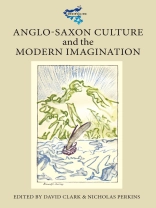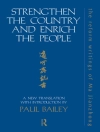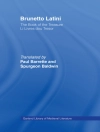The essays here engage with the ways in which the Anglo-Saxons and their literature have been received, confronted, and re-envisioned in the modern imagination.
An excellent collection… breaks new ground in many areas. Should make a substantial impact on the discussion of the contemporary influence of Anglo-Saxon Culture. Conor Mc Carthy, author of
Seamus Heaney and the Medieval Imagination
Britain’s pre-Conquest past and its culture continues to fascinate modern writers and artists. From Henry Sweet’s
Anglo-Saxon Reader to Seamus Heaney’s
Beowulf, and from high modernism to themusclebound heroes of comic book and Hollywood, Anglo-Saxon England has been a powerful and often unexpected source of inspiration, antagonism, and reflection. The essays here engage with the ways in which the Anglo-Saxons and their literature have been received, confronted, and re-envisioned in the modern imagination. They offer fresh insights on established figures, such as W.H. Auden, J.R.R. Tolkien, and David Jones, and on contemporary writers such as Geoffrey Hill, Peter Reading, P.D. James, and Heaney. They explore the interaction between text, image and landscape in medieval and modern books, the recasting of mythic figures such as Wayland Smith, and the metamorphosis of
Beowulf into
Grendel – as a novel and as grand opera. The early medieval emerges not simply as a site of nostalgia or anxiety in modern revisions, but instead provides a vital arena for creativity, pleasure, and artistic experiment.
Contributors: Bernard O’Donoghue, Chris Jones, Mark Atherton, Maria Artamonova, Anna Johnson, Clare A. Lees, Sian Echard, Catherine A.M. Clarke, Maria Sachiko Cecire, Allen J. Frantzen, John Halbrooks, Hannah J. Crawforth, Joshua Davies, Rebecca Anne Barr
Зміст
Introduction – Nicholas Perkins and David Clark
From Heorot to Hollywood:
Beowulf in its Third Millennium – C S Jones
Priming the Poets: the Making of Henry Sweet’s
Anglo-Saxon Reader – M Atherton
Owed to Both Sides: W.H. Auden’s Double Debt to the Literature of the North – Heather O’Donoghue
Writing for an Anglo-Saxon Audience in the Twentieth Century: J.R.R. Tolkien’s Old English Chronicles – Maria Artamonova
‘Wounded men and wounded trees’: David Jones and the Anglo-Saxon Culture Tangle – Anna Johnson
Basil Bunting,
Briggflatts, Lindisfarne, and Anglo-Saxon Interlace – Clare Lees
BOOM: Seeing
Beowulf in Pictures and Print – Sian Echard
Window in the Wall: Looking for Grand Opera in John Gardner’s
Grendel – Allen J. Frantzen
Re-placing Masculinity: The DC Comics
Beowulf Series and its Context, 1975-6 – Catherine A M Clarke
P.D. James Reads
Beowulf – John Halbrooks
Ban Welondes: Wayland Smith in Popular Culture – Maria Sachiko Cecire
‘Overlord of the M5’: The Superlative Structure of Sovereignty in Geoffrey Hill’s
Mercian Hymns – Hannah J. Crawforth
The Absent Anglo-Saxon Past in Ted Hughes’s
Elmet – Joshua Davies
Resurrecting Saxon Things: Peter Reading, ‘species decline’, and Old English Poetry – Rebecca Anne Barr
Про автора
Maria Artamonova is a graduate of St Petersburg State University and holds a doctorate in Old English from the University of Oxford. She is an Oxfordshire-based translator and also teaches medieval and fantasy literature.












